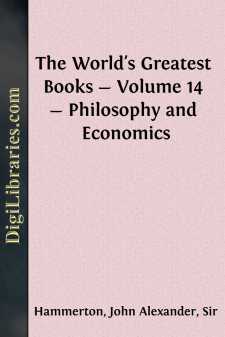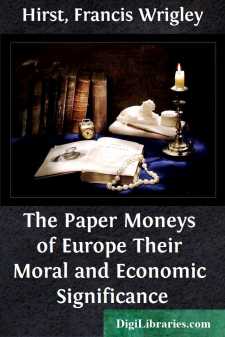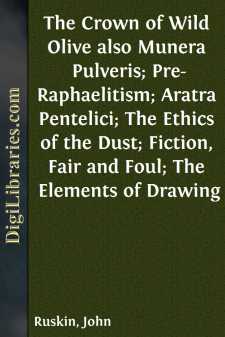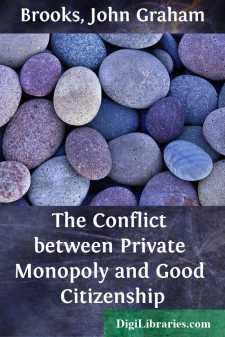Business & Economics
Business & Economics Books
Sort by:
INTRODUCTION We are told every day that great social problems stand before us and demand a solution, and we are assailed by oracles, threats, and warnings in reference to those problems. There is a school of writers who are playing quite a rôle as the heralds of the coming duty and the coming woe. They assume to speak for a large, but vague and undefined, constituency, who set the task, exact a...
more...
by:
Seymour Eaton
I. COMMERCIAL TERMS AND USAGES HERE is a distinction between the usage of the names commerce and business. The interchange of products and manufactured articles between countries, or even between different sections of the same country, is usually referred to as commerce. The term business refers more particularly to our dealings at home—that is, in our own town or city. Sometimes this name is used in...
more...
I was born near Ottawa, Illinois, January 6th, 1852, of Scotch-Irish descent. My great-great-grandfather Johnston was a Presbyterian clergyman, who graduated from the University of Edinburg, Scotland. My mother's name was Finch. The family originally came from New England and were typical Yankees as far as I have been able to trace them. My father, whose full name I bear, died six months previous...
more...
by:
Samuel Smiles
CHAPTER I. INDUSTRY. "Not what I have, but what I do, is my kingdom."—Carlyle. "Productive industry is the only capital which enriches a people, and spreads national prosperity and well-being. In all labour there is profit, says Solomon. What is the science of Political Economy, but a dull sermon on this text?"—Samuel Laing. "God provides the good things of the world to serve...
more...
HEGEL The Philosophy of History Georg Wilhelm Friedrich Hegel was born on August 27, 1770, at Stuttgart, the capital of Würtemburg, in which state his father occupied a humble position in government service. He was educated at Tübingen for the ministry, and while there was, in private, a diligent student of Kant and Rousseau. In 1805 he was Professor Extraordinarius at the University of Jena, and in...
more...
by:
Herbert Feis
CHAPTER I—INTRODUCTORY Section 1. In any attempt to formulate principles for use in the settlement of wage disputes, past experience furnishes much guidance. What this experience consists of.—Section 2. Such principles as have been used in the settlement of wage disputes have usually resulted from compromise; reason and economic analysis have usually been secondary factors. However, industrial...
more...
by:
DadaBhagwan
Money has its own importance in our life. The world considers money and wealth as one of the most important thing in life. People have more love for money because it is needed in everything they do. That is why there is fight all around the world to get more money, by ethical or unethical means. People have been bothered by the uneven distribution of money and wealth. In this dangerous era of Kaliyug,...
more...
THEIR MORAL AND ECONOMIC SIGNIFICANCE No more severe reflection could be passed upon the moral and political capacity of the human species than this: Five thousand years after the invention of writing, three thousand after the invention of money, and (nearly) five hundred since the invention of printing, governments all over the world are employing the third invention for the purpose of debasing the...
more...
by:
John Ruskin
PREFACE. Twenty years ago, there was no lovelier piece of lowland scenery in South England, nor any more pathetic in the world, by its expression of sweet human character and life, than that immediately bordering on the sources of the Wandle, and including the lower moors of Addington, and the villages of Beddington and Carshalton, with all their pools and streams. No clearer or diviner waters ever...
more...
For a special purpose, I have had occasion to examine with care the comments upon American life and institutions made by foreign critics during the period that extends from the later part of the eighteenth century up to the present time. If one puts aside the frivolous and ill-tempered studies and considers alone the fairer and more competent observers, the least pleasant of all the criticisms is that...
more...











